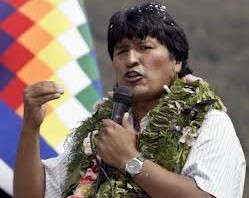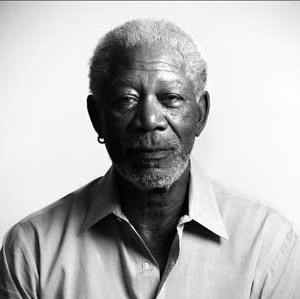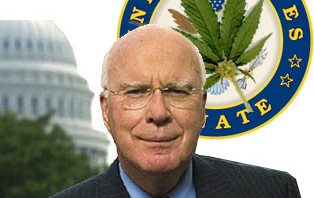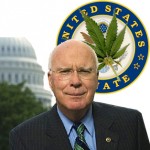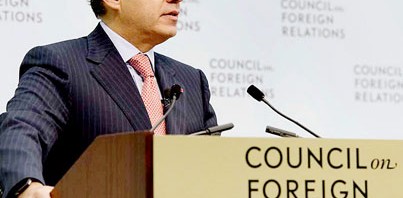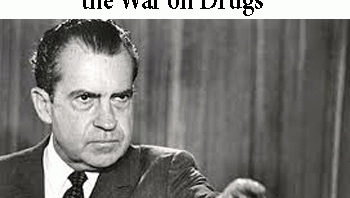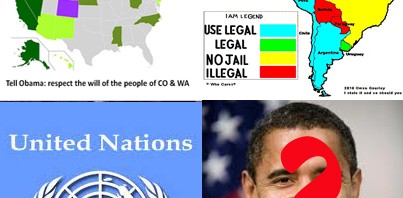Breaking the Taboo is a global grass-roots campaign website against the War on Drugs, run by the Beckley Foundation in association with The Global Commission on Drug Policy, Virgin Unite, Avaaz and Sundog Pictures. The Mission Statement of the campaign is the Beckley Foundation Public Letter calling for a new approach to the War on Drugs, signed by nine Presidents, twelve Nobel prize winners, and many other world figures. The site hosts a coalition of international NGOs, united in their belief that the War on Drugs has failed and that global drug policy can and must be reformed. An Avaaz petition is hosted on the site, which will be presented to the UN. We hope that by collecting together so many voices calling for change, we will finally be able to persuade governments and lawmakers into adopting a humane and rational approach to drugs.
Fifty years after the 1961 UN Single Convention on Narcotic Drugs was launched, the global war on drugs has failed, and has had many unintended and devastating consequences worldwide.
Use of the major controlled drugs has risen, and supply is cheaper and more available than ever before. The UN conservatively estimates that there are now over 250 million drug users worldwide.
Illicit drugs are now the third most valuable industry in the world, after food and oil, all in the control of criminals. Fighting the war on drugs costs the world’s taxpayers incalculable billions each year. Millions of people are in prison worldwide for drug-related offences, mostly personal users and small-time dealers.
Corruption amongst law-enforcers and politicians, especially in producer and transit countries, has spread as never before, endangering democracy and civil society. Stability, security and development are threatened by the fallout from the war on drugs, as are human rights. Tens of thousands of people die in the drug war each year.
The drug-free world so confidently predicted by supporters of the war on drugs is further than ever from attainment.The policies of prohibition create more harms than they prevent. We must seriously consider shifting resources away from criminalising tens of millions of otherwise law abiding citizens, and move towards an approach based on health, harm-reduction, cost-effectiveness and respect for human rights.
Evidence consistently shows that these health-based approaches deliver better results than criminalisation. Improving our drug policies is one of the key policy challenges of our time. It is time for world leaders to fundamentally review their strategies in response to the drug phenomenon.
At the root of current policies lies the 1961 UN Single Convention on Narcotic Drugs. It is time to re-examine this treaty, which imposes a “one-size-fits-all” solution, in order to allow individual countries the freedom to explore drug policies that better suit their domestic needs.
As the production, demand and use of drugs cannot be eradicated, new ways must be found to minimise harms, and new policies, based on scientific evidence, must be explored.
President Juan Manuel Santos, President of Colombia
President Otto Pérez Molina, President of Guatemala
President César Gaviria, Former President of Colombia
President Lech Wałęsa, Former President of Poland, Nobel Prize winner
President Aleksander Kwaśniewski, Former President of Poland
President Jimmy Carter, Former President of the United States of America
President Fernando H. Cardoso, Former President of Brazil
President Ruth Dreifuss, Former President of Switzerland
President Vincente Fox, Former President of Mexico
Sir Richard Branson, Entrepreneur and Founder of the Virgin Group
Bernardo Bertolucci, Oscar-winning Film Director
Carlos Fuentes, Novelist and essayist
Sean Parker, Founding President of Facebook, Director of Spotify
Thorvald Stoltenberg, Former Minister of Foreign Affairs (Norway) and UN High Commissioner for Refugees
Asma Jahangir, Former UN Special Rapporteur on Arbitrary, Extrajudicial and Summary Execution
Louise Arbour, CC, GOQ, Former UN High-Commissioner for Human Rights
Professor Sir Anthony Leggett, Physicist, Nobel Prize winner
Dr. Kary Mullis, Chemist, Nobel Prize winner
Maria Cattaui, Former Secretary-General of the International Chamber of Commerce
Wisława Szymborska, Poet, Nobel Prize winner
Professor Sir Harold Kroto, Chemist, Nobel Prize winner
Professor Sir Harold Kroto, Chemist, Nobel Prize winner
Gilberto Gil, Musician, former Minister of Culture, Brazil
Professor Thomas C. Schelling, Economist, Nobel Prize winner
Professor Sir Peter Mansfield, Economist, Nobel Prize winner
Professor Niall Ferguson, Professor of History at Harvard University
Professor Colin Blakemore, Professor of Neuroscience at the University of Oxford and University of Warwick
Professor David Nutt, Former Chair of the Advisory Council for the Misuse of Drugs
Professor Sir Partha Dasgupta, Professor of Economics at Cambridge
Dr. Julian Huppert, MP, Vice-Chair of the All-Party Parliamentary Group for Drug Policy Reform
Dr. Muhammed Abdul Bari, MBE, Former Secretary General of the Muslim Council of Britain
Trudie Styler, Actress and producer
Professor Peter Singer, Professor of Bioethics at Princeton University
Lord Mancroft, Chair of the Drug and Alcohol Foundation
Professor A. C. Grayling, Master of the New College of the Humanities
General Lord Ramsbotham, Former HM Chief Inspector of Prisons
Lord MacDonald, QC, Former Head of the Crown Prosecution Service
Sir Peregrine Worsthorne, Former Editor of The Sunday Telegraph
Tom Brake, MP, Co-chair of the Lib Dem Home Affairs, Justice and Equalities Parliamentary Policy Committee
Professor Noam Chomsky, Professor of Linguistics and Philosophy at MIT
George P. Schultz, Former US Secretary of State
Yoko Ono, Musician and artist
Mario Vargas Llosa, Writer, Nobel Prize winner
Jaswant Singh, Former Minister of Defence, of Finance, and for External Affairs, India
Sting, Musician and actor
Michel Kazatchkine, United Nations Special Envoy for HIV/AIDS
John Whitehead, Former US Deputy Secretary of State
John Perry Barlow, Co-founder of the Electronic Frontier Foundation
Javier Solana, KOGF, KCMG, Former EU High Representative for the Common Foreign and Security Policy
Professor Kenneth Arrow, Economist, Nobel Prize winner
Jeremy Thomas, Film Producer
Professor John Polanyi, Chemist, Nobel Prize winner
Pavel Bém, Former Mayor of Prague
Dr. Jan Wiarda, Former President of European Police Chiefs
Professor Lord Piot, Former UN Under Secretary-General
Professor Martin L. Perl, Physicist, Nobel Prize winner
Lord Rees, OM, Astronomer Royal and former President of the Royal Society
Professor Sir Ian Gilmore, Former President of the Royal College of Physicians
Professor Trevor Robbins, Professor of Neuroscience at Cambridge
Caroline Lucas, MP, Leader of the Green Party and MP for Brighton
Professor Jonathan Wolff, Professor of Philosophy at UCL
Carel Edwards, Former Head of the EU Commission’s Drug Policy Unit
Professor Robin Room, School of Population Health, University of Melbourne
Gary Johnson, Former Republican US Presidential Candidate
Bob Ainsworth, MP, Former UK Secretary of State for Defence
Nicholas Green, QC, Former Chairman of the Bar Council
Peter Lilley, MP, Former Secretary of State for Social Security
Tom Lloyd, Former Chief Constable of Cambridgeshire
Professor Robert Grayling, Dean of School of Medicine, KCL
Paul Flynn, MP, Labour MP for Newport West
Dr. Patrick Aeberhard, Former President of Doctors of the World
Amanda Feilding, Director of the Beckley Foundation


